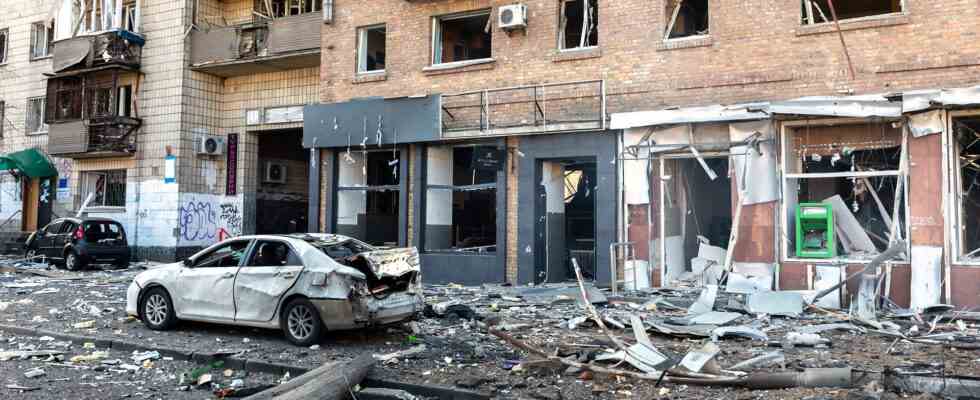Status: 03/28/2022 08:10 a.m
Also because there are so many well-trained IT specialists in Ukraine, German companies have invested in the country in the past. How do you deal with the war now?
Almost 5000 IT companies are based in Ukraine. High investments by the Ukrainian state in its own digital infrastructure also attracted German entrepreneurs. Knuth Rüffer, for example, managing director of the software company Scalors GmbH from Achim near Bremen, opened an office in Kyiv in 2015. The company currently has around 95 employees, 85 of whom work in Kyiv. So far there have been no problems finding new employees.
“There are around 250,000 to 300,000 IT experts in the country. It’s hardly a matter of cost savings anymore, it’s just about the pure availability of the people,” says Rüffer. “They are technologically very well trained and also continue to educate themselves very well in terms of modern, new technologies. In addition, culturally it is very close to Germany.”
Developer hours are missing
Companies like Boeing, Bosch and the car rental company Sixt also have IT departments in Ukraine. Due to the war and the fact that some employees were drafted into military service, Scalors currently only achieves around 65 percent productivity.
Knuth Rüffer estimates that there is currently a shortage of around one million IT developer hours on the Western European and American markets. In order to cover the high demand for work, the company has now initiated recruiting processes in countries such as Poland, Romania and Portugal. This will increase the project costs.
A matter of cost
“We are currently having these talks with all employees. There are some who then say they want to stay closer to the border, in Poland, which would be perfectly fine for us as a company.” There, tax conditions and wage levels are similar to those in Ukraine, so the costs will not change much. “If we bring people to Germany, then of course we have to work with completely different hourly rates, and the entire IT industry in Germany and within the EU would probably notice that.”
The question of Ukrainian independence is now decisive for the future of his company. What would happen if the country fell under Russian control is unclear. Rüffer has no worries about the continued existence of his company. The customers would understand the current situation.
“All or nothing”
The situation with farmer Markus Schütte is completely different. Eighteen years ago, the graduate agricultural economist moved with his family from Halle in the Weser Uplands in Lower Saxony to near the western Ukrainian city of Luzk. Here he manages a 5000-hectare farm and employs 50 people. It is uncertain whether he will be able to call his farm his own in the future: “If you look at Russia’s aggressive behavior now, I don’t assume that our farms would be preserved in the event that western Ukraine was occupied. Well it’s practically all or nothing for us.”
Known as the breadbasket of Europe, Ukraine is responsible for 11.5 percent of global wheat exports. Wheat is also grown on Markus Schütte’s farm. Although Germany is largely self-sufficient in wheat, the consequences of the war and the sanctions against Russia are having an impact on the German food market. A tonne of wheat cost 264 euros at the beginning of February, and by the beginning of March it was already 394 euros. Both countries are important wheat producers.
Wheat exports important for world nutrition
“Both countries, Russia and Ukraine, are important producers on a global scale,” says Henning Ehlers, Managing Director of the German Raiffeisen Association (DRV). “In the case of wheat alone, both countries produce 110 million tons and half of that, more than 50 million tons, is exported.” Together, Russia and Ukraine are responsible for over a quarter of global wheat exports. Because the producers in both countries are either absent or cannot deliver as desired, the global supply is reduced and the price rises.
The work can currently continue on Markus Schütte’s farm. He spends most of his time with his wife and three children in Berlin. He would like to keep his farm, but a quick end to the war and defending freedom are more important to him. At home in Berlin, he has taken in two women and their children from his village in the Ukraine. The men had to stay in the country.
The business magazine Plusminus reported on this topic on March 23, 2022 in the first.

